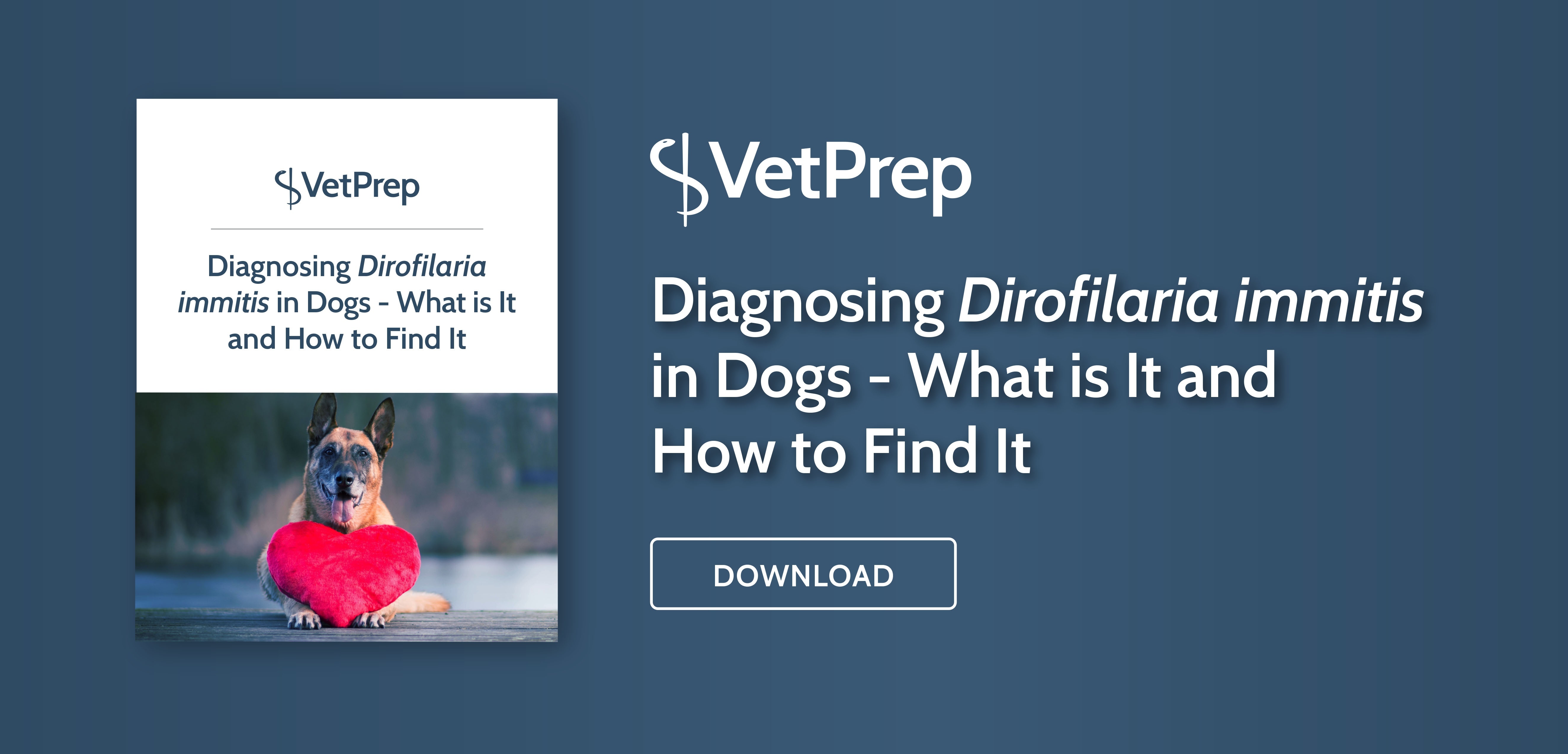
In a perfect world, every dog with heartworms would be treated according to the American Heartworm Society’s recommended protocol: doxycycline and a macrocyclic lactone, followed by three injections of melarsomine (adulticide).
Unfortunately, we don’t live in a perfect world and the cost of heartworm treatment leads many clients to consider alternatives.
One method you may hear about in practice (if you haven’t already) is the slow-kill method. In this treatment approach, a dog is started on monthly heartworm prevention with no intention of performing melarsomine injections. While this is probably better than doing nothing, it’s not at all comparable to adulticide treatment.
Numerous myths circulate about slow-kill heartworm treatment. Understanding these myths, and the reality behind them, will help you be ready to discuss heartworm treatment with your clients in practice.
Myth: Slow-kill heartworm treatment is safer than adulticide.
Fact: While adulticide treatment is not entirely risk-free, slow-kill treatment is even more dangerous for a dog with heartworm disease.
The main life-threatening complication of any heartworm treatment, and of heartworm disease in general, is pulmonary thromboembolism (PTE). Any time an adult worm dies, the dead worm travels into the peripheral pulmonary vessels and puts the patient at risk for PTE.Dogs receiving adulticide experience the death of all of their adult worms within a period of a couple of months, allowing the veterinarian and pet owner to take steps to minimize PTE risks during this time (prednisone administration, exercise restriction, careful monitoring). Dogs receiving slow-kill treatment experience unpredictable worm death over a period of several years, making it far more challenging to minimize the risk of complications.Heartworm disease also causes permanent damage within the heart and lungs. Studies have shown that radiographic signs of heartworm disease develop and progress even while a dog is on slow-kill treatment.(1) This is in contrast to adulticide treatment, in which the damage is halted quickly.Caption: Radiographs show enlargement of the pulmonary arteries (A, B), main pulmonary artery bulge (C), and “reverse D” shape (D).]Myth: Slow-kill heartworm treatment allows the dog to avoid activity restriction.
Fact: Dogs receiving slow-kill therapy require a longer period of activity restriction than dogs receiving adulticide.
Many clients express concerns about restricting their dog’s activity for several months, as recommended with adulticide treatment. Unfortunately, the activity restriction required with the slow-kill method is an even longer duration! Dogs treated with the slow-kill method should have their activity restricted for the entire duration of treatment, which may be several years.(2)Myth: Heartworm infections resolve with a year or two of slow-kill therapy.
Fact: Heartworm infections treated with the slow-kill method may take several years to resolve.
A 2004 study examining the efficacy of the slow-kill method determined that nearly 30% of dogs still tested positive on a heartworm antigen test after 24 months of monthly heartworm prevention.(1)
Additionally, new research has shown that some dogs that test antigen-negative after slow-kill treatment may still have heartworms; these antigens may go undetected due to the formation of antigen-antibody complexes. Therefore, it’s safe to assume that GREATER than 30% of dogs are still heartworm-positive after two years of slow-kill treatment.Myth: Slow-kill and adulticide are both valid options for heartworm treatment.
Fact: The slow-kill method is “a salvage procedure, not a treatment of choice.” (2)
Slow-kill therapy should only be offered to clients who decline adulticide therapy for their dog’s heartworms. Clients must realize that the slow-kill method is a salvage procedure (intended to prevent new infections and hopefully shorten the course of disease), not a treatment that is intended to cure heartworms.If there is any possible way for a dog to receive adulticide treatment, that is the preferred approach.
- Venco L, et al. 2004. Efficacy of long-term monthly administration of ivermectin on the progress of naturally acquired heartworm infections in dogs. Vet Parasitol. Oct 5;124(3-4): 259-68.
- Moorehead A. 2018. The AHS Protocol vs. “Slow Kill.” American Heartworm Society.




